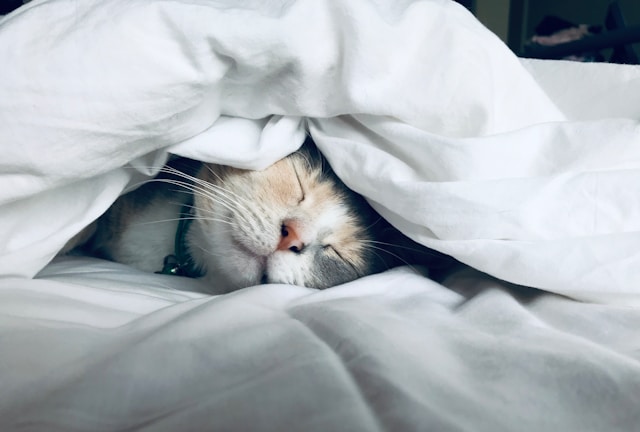Do you ever lie awake at night asking, “why am I not sleeping?” or “why my sleep disturbed?” You’re far from alone. Sleep issues and disorders affect millions globally, reducing quality of life, increasing health risks, and making daily tasks harder.
In this guide, you’ll learn the key reasons behind sleep disorders, practical sleep hacks for disorders, and how to find relief when I cannot sleep at night.

What Exactly Are Sleep Disorders?
“Sleep disorders” is a broad term referring to conditions that impair sleep quality, timing, or duration, ultimately affecting your waking life.
Some of the most common types include:
- Insomnia – difficulty falling or staying asleep
- Sleep apnea – abnormal breathing patterns interrupting sleep
- Narcolepsy / hypersomnia – excessive daytime sleepiness
- Circadian rhythm disorders – misalignment of internal clock and external timing (e.g. shift work)
- Parasomnias – unusual behaviors during sleep (sleepwalking, REM behavior disorder)
When you’re dealing with a problem in sleeping night after night, the underlying cause might be one of these or a combination of factors.
Major Sleep Disorders Reasons (Why Not Sleeping & More)
Many things can derail your sleep. Below are the top reasons people struggle with sleep issues or sleeping disorder at night.
1. Medical or Physiological Causes
- Sleep apnea is a major culprit. Obstructive sleep apnea (OSA) involves repeated airway blockages during sleep, leading to fragmented rest and oxygen drops.
- Chronic pain, respiratory disorders, or neurological conditions (like Parkinson’s) cause frequent awakenings.
- Medications or substances – certain antidepressants, stimulants, caffeine, or alcohol disrupt sleep cycles.
- Hormonal or metabolic issues such as thyroid problems or diabetes can also disturb sleep.
2. Mental Health & Emotional Factors
- Stress, anxiety, depression — among the most common culprits behind insomnia.
- PTSD or trauma can lead to nightmares and restlessness.
- Overthinking / racing mind before bed keeps the brain alert, worsening why I cannot sleep situations.
3. Lifestyle, Behavior & Environmental Factors
- Irregular schedules, shift work, or jet lag disturb circadian rhythms, causing sleeping in night difficulties.
- Poor sleep hygiene — screen time, bright lights, uncomfortable room, or noise can worsen things.
- Caffeine, nicotine, alcohol before bed interfere with deep sleep phases.
- Napping too long or too late reduces sleep drive at night.
4. Genetic, Age & Biological Factors
- Some people have inherited tendencies to poor sleep.
- As we age, deep sleep decreases and awakenings become frequent.
- Hormonal changes (puberty, menopause) affect sleep cycles too.
How to Recognize You Have a Sleep Disorder

If you're persistently asking “I cannot sleep at night” or noticing “sleeping disorder at night” symptoms, look for:
- Trouble falling asleep (taking more than 30 mins)
- Waking up often or too early
- Feeling tired despite sleeping
- Daytime fatigue or sleepiness
- Snoring, gasping, or choking (possible sleep apnea)
- Mood swings or irritability
If these symptoms last for weeks, it’s time to consult a sleep specialist.
Smart Sleep Hacks for Disorders 😴
You can try these sleep hacks for disorders to improve sleep issues naturally:
- Stick to a consistent sleep schedule, even on weekends.
- Create a bedtime ritual – meditation, soft music, light stretching.
- Control light exposure – dim lights at night, bright mornings. Avoid screens 1 hour before bed.
- Cool, dark, quiet bedroom helps deeper sleep.
- Limit caffeine and alcohol after afternoon hours.
- Daytime sunlight & exercise improve circadian rhythm.
- Keep naps short and early (20–30 minutes).
- Use mindfulness or breathing techniques to relax your mind.
These small daily improvements can reduce sleeping difficulties and answer your constant “why not sleeping” concern.
When Medical Help Is Needed (Especially for Sleep Apnea)
Sometimes, lifestyle changes aren’t enough. If you have loud snoring, gasping, choking, or constant fatigue — you might have sleep apnea.
Treatment options include:
- Sleep study (polysomnography) to diagnose apnea.
- CPAP machine (Continuous Positive Airway Pressure) to keep airways open.
- Lifestyle adjustments like weight loss or changing sleep positions.
- CBT-I (Cognitive Behavioral Therapy for Insomnia) for chronic insomnia.
Getting professional help ensures your sleep isn’t just longer, but healthier and restorative.
My Personal iPhone Analogy (Yes, It Relates!) 📱
When I bought my iPhone 16 Pro Max, it lagged even though it was new. I tried multiple fixes online, but the only solution was setting it up fresh — without restoring backups. After that, it improved. But when I updated to iOS 26 Beta 3, the performance became flawless — zero lag, instant response.
Your sleep works the same way.
If your brain feels “laggy” due to bad habits, stress, and poor environment — it’s like running an outdated operating system.
To fix your sleep:
- Reset your habits – avoid screens, caffeine, and irregular timings.
- Update your system – use relaxation hacks, medical support, and consistency.
- Enjoy smooth sleep performance – no lag, no delays, just peaceful rest.
FAQs – Why I Can’t Sleep, Why My Sleep Disturbed?
Q1: Why can’t I sleep at night even when I’m tired?
Your sleep rhythm might be off, or stress/caffeine could be overstimulating your mind. Try relaxing rituals and reduce light exposure before bed.
Q2: What causes sleeping in night difficulties (waking up often)?
Reasons include sleep apnea, anxiety, pain, or certain medications. A sleep doctor can pinpoint the cause.
Q3: Is sleep apnea a reason for disturbed sleep?
Yes. Sleep apnea interrupts breathing and causes frequent micro-awakenings that leave you exhausted.
Q4: Why my sleep disturbed even when I go to bed on time?
Hidden factors like stress, noise, temperature, or hormonal imbalances could be at play. Try a full sleep hygiene reset.
Q5: When should I see a doctor for sleep issues?
If symptoms persist for over 3 months or you experience loud snoring, choking, or extreme fatigue, consult a specialist.
Bringing It All Together
Struggling with problem in sleeping, why not sleeping, or why my sleep disturbed is exhausting — but fixable.
Here’s your action plan:
- Identify what kind of sleep challenge you have (insomnia, apnea, rhythm issues).
- Reset bad habits and practice good sleep hygiene.
- Get medical advice if symptoms persist.
- Track your progress and adjust consistently.
Sleep isn’t a luxury — it’s a necessity.
Treat it like your most important system upgrade and you’ll wake up refreshed, sharper, and happier. 🌙
👉 What’s your biggest sleep struggle?
Comment below and share your experience.
Don’t forget to subscribe for more sleep tips, stress management, and health hacks on our blog!
#SleepDisorders #SleepHacks #SleepApnea #InsomniaTips #BetterSleep
With care,
Hassan Tariq
Founder of IdeasBlooming

